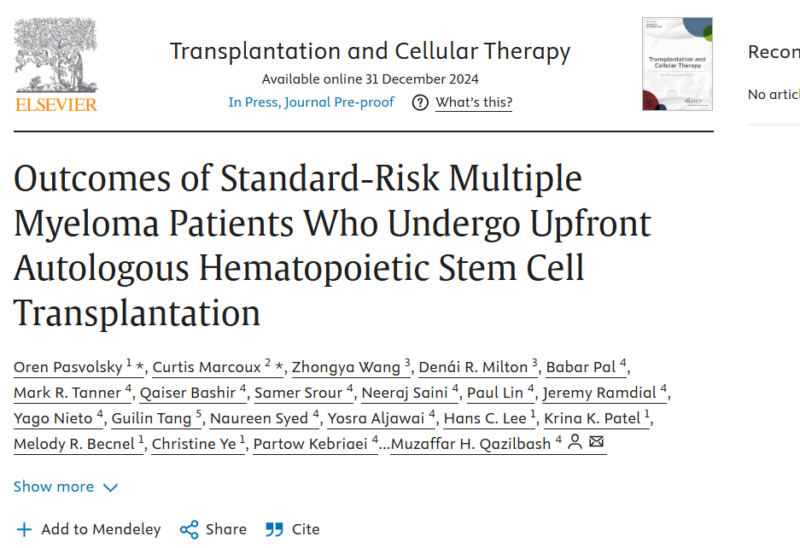Robert Orlowski shared a post on X:
“Myeloma Paper of the Day: Study of standard-risk myeloma patient outcomes s/p upfront ASCT finds at d100 post-ASCT, 37% and 77% achieved ≥CR and ≥VGPR; 62% and 89% achieved ≥CR and ≥VGPR as best response; median PFS was 68.3 months and median OS not reached.”
Authors: Oren Pasvolsky, Curtis Marcoux, Zhongya Wang, Denái R Milton, Babar Pal, Mark R Tanner, Qaiser Bashir, Samer Srour, Neeraj Saini, Paul Lin, Jeremy Ramdial, Yago Nieto, Guilin Tang, Naureen Syed, Yosra Aljawai, Hans C Lee, Krina K Patel, Melody R Becnel, Christine Ye, Partow Kebriaei, Sheeba K Thomas, Robert Z Orlowski, Richard E Champlin, Elizabeth J Shpall, Muzaffar H Qazilbash.

More posts featuring Robert Orlowski.
Robert Orlowski, M.D., Ph.D., holds multiple positions at The University of Texas MD Anderson Cancer Center, including Chairman, Ad Interim Director of Myeloma, and Professor of Medicine in the Departments of Lymphoma/Myeloma and Experimental Therapeutics within the Division of Cancer Medicine.
Additionally, he chairs the SWOG Barlogie/Salmon Myeloma Committee, which is part of the National Clinical Trials Network, dedicated to advancing new therapies and understanding the biology of myeloma.
Dr. Orlowski’s expertise lies in both clinical practice and scientific research, with a particular focus on translating laboratory discoveries into effective treatments for patients. He investigates drug resistance mechanisms in myeloma and seeks to identify predictive biomarkers for treatment response.
Notably, his past contributions include leadership roles in developing proteasome inhibitors like bortezomib and carfilzomib, as well as monoclonal antibodies such as daratumumab and elotuzumab.


